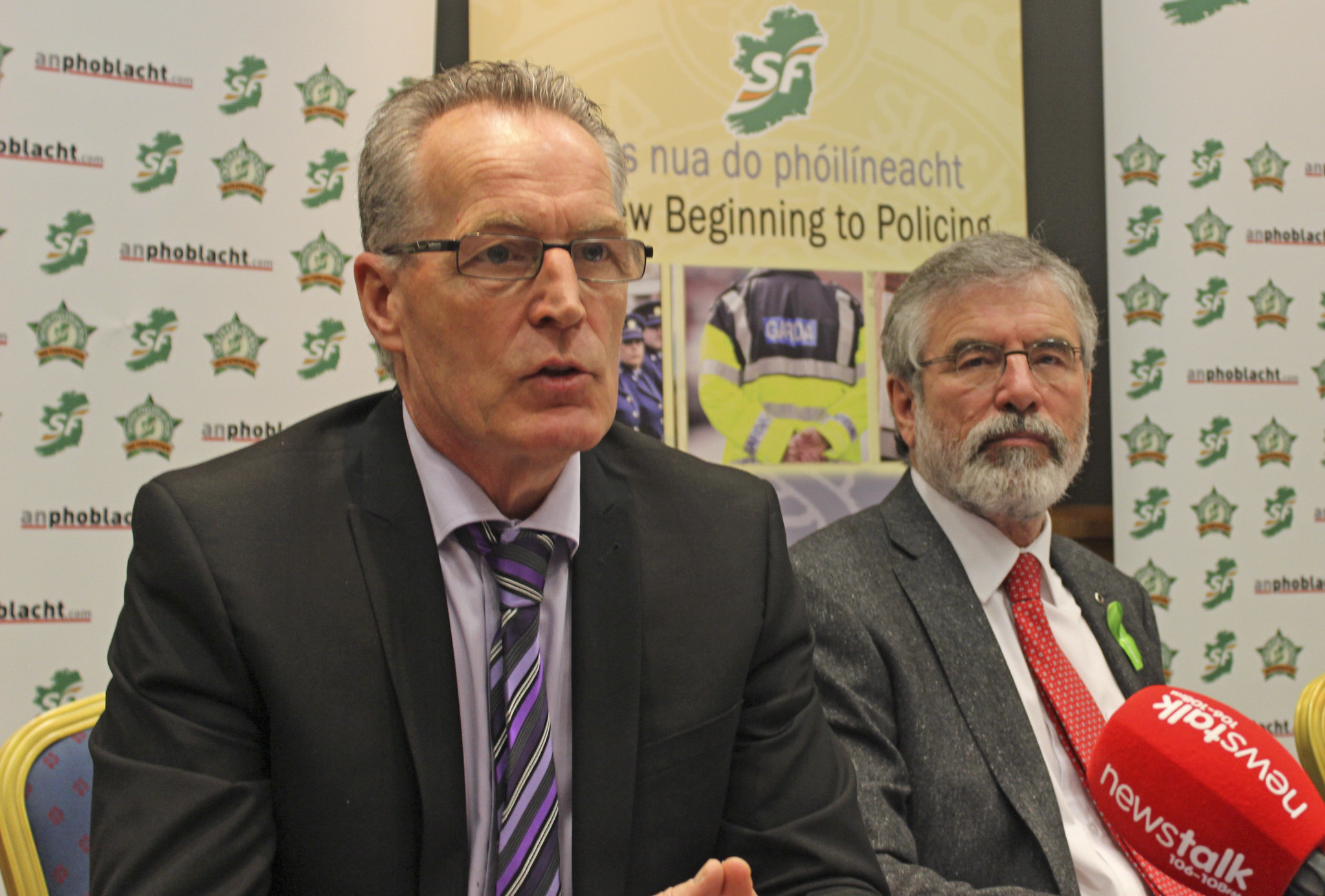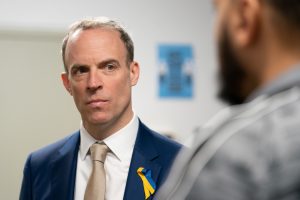31 Aug 2022 | FEATURED: Martin Bright, News and features, Russia

Mikhail Gorbachev in 2008. Photo: European Parliament, CC BY-NC-ND 2.0
In 2000 Mikhail Gorbachev wrote a short piece for Index on Censorship about the dangers to free expression in 21st century Russia. It followed raids carried out by masked, armed police on the offices of the Media-MOST consortium, then one of the most powerful media organisations in Russia. It was a show of force by the incoming president, Vladimir Putin, and a chilling sign of things to come.
The article, entitled Citizens’ Watch, expressed the best of the former President’s instincts in support of democracy and freedom: “Without a free press people don’t have a voice. They can be used as the authorities see fit; they can be manipulated”.
It was also prophetic in its concerns that the Russian people were sleepwalking into an authoritarian disaster: “I’m… worried and dispirited by the apathy of the public. The journalists are having to defend themselves on their own. It’s time we understood we shall never be a democratic state until we have learned to be citizens.”
He concluded: “It is not easy to live as a free man; without democratic institutions and rules, freedom often becomes its opposite.”
But the piece also demonstrates Gorbachev’s fatal weakness. As a good man with good intentions, he was too willing to give those with bad intentions (such as Vladimir Putin) the benefit of the doubt. Musing on who might be ultimately responsible for the crackdown, he wrote: “I find it hard to believe that raids like these can take place with the president’s knowledge. If, indeed, it is with his knowledge, I personally feel very disappointed.”
Disappointment defined Mikhail Gorbachev. As the last leader of the Soviet Union, he was quite possibly the most influential political figure of the post-war period, but from the moment the Berlin Wall fell, his life was marked with a series of disappointments. He had hoped the break-up of the Soviet Union would lead to democratic transformation and the introduction of a market economy with social safeguards. In many countries of the former Eastern bloc, this was indeed the case, but he also witnessed the rise of tyranny and corruption in many of the former Soviet republics. In his beloved Russia itself, he saw his liberal economic reforms hijacked first by the oligarchs and then by the state itself. This man of peace, whose childhood had driven him towards dialogue with the West, stood by as his country descended into an increasingly aggressive foreign policy with wars in Chechnya, Georgia, Syria and latterly in Ukraine. History will judge him harshly for his support of the Russian annexation of Crimea in 2014, although in his mind it was consistent with his lifelong support for national self-determination.
But possibly his greatest disappointment was what he saw as the catastrophic failure of world leaders to deal with the environmental crisis. In an interview with the Russian publication Dos’e na Tesnzuru reprinted in this magazine in 1998 he noted that “ecology” sprang to the top of the agenda in Russia thanks to his policy of glasnost (openness). As a result, 1,300 polluting enterprises were closed. It was his dream to establish a global environmental organisation to address the combined challenges of security poverty and environmental destruction and following the Rio Earth Summit in 1992 he established Green Cross International in Geneva.
His words in Index sounded an important warning: “Everyone can see that the forests are retreating, rivers becoming polluted. The reasons are obvious – people rule the earth, but they are not looking after it, only making demands: give me cotton, give me wood, give, give, give. We have to manage things differently.”
The end of the Cold War was Gorbachev’s greatest legacy and he knew that the freedoms he helped establish were built on the work done by the dissident intellectuals that came before him. He also knew that complacency was not an option.
A quarter of a century ago he told Dos’e na Tesnuru (which means Index on Censorship in Russian): “I am not a pessimist. All over the world the last dictators are leaving the political scene; attempts to impose dictatorship are ridiculous. Only one thing can protect us from such attempts – freedom of speech. That’s why any defence of freedom of speech is so important. Without it we could find ourselves once again caught in the trap.” His prediction of the demise of dictatorships was perhaps premature, but he was never wrong about the antidote.
4 Aug 2022 | News and features, Northern Ireland, Statements, United Kingdom

Gerry Kelly MLA & Gerry Adams TD. Photo: Sinn Fein, CC BY 2.0
Index on Censorship is concerned at the lawsuits that have been filed against journalist Malachi O’Doherty and columnist Ruth Dudley Edwards. Both are being sued individually by Sinn Féin politician Gerry Kelly MLA, who is claiming aggravated damages for comments they each made – on radio and in print respectively – in relation to Kelly’s role in 1983 Maze Prison escape.
“Everyone has the right to defend their good name but as elected representatives, politicians have a duty to display a greater degree of restraint when it comes to taking to legal action against journalists. This is especially true when the contested statements are related to matters of public interest. Lawsuits against journalists can have a serious and damaging impact on media freedom and on our democracy,” said Jessica Ní Mhainín, Policy and Campaigns Manager at Index on Censorship.
Explaining Index on Censorship’s decision to file a media freedom alert to the Council of Europe Platform, Ní Mhainín said: “We are concerned that these lawsuits in particular have several characteristics of strategic lawsuits against public participation or ‘SLAPPs’. SLAPPs involve powerful people – such as politicians – making legal threats or taking legal actions against public watchdogs – such as journalists – in response to public interest speech.”
This is the seventh media freedom alert filed on the United Kingdom to the Council of Europe Platform to Promote the Protection of Journalism and Safety of Journalists this year and the third relating to SLAPPs.
14 Jul 2022 | Opinion, Ruth's blog, United Kingdom
“Unintended consequences”, “ideologically incoherent”, “won’t change culture or make us safer”.
I have written all these words and many more about the British Government’s Online Safety Bill. Index on Censorship has spent the last eighteen months campaigning against the worst excesses of the Online Safety Bill and how it would undermine freedom of expression online.
Our lines have been clear:
1. What is legal to say offline should be legal online.
2. End to end encryption should not be undermined.
3. Online anonymity needs to be protected.
The current proposals that were progressing through the British Parliament undermined each of these principles and were going to set a new standard of speech online which would have led to speech codes, heavily censored platforms, no secure online messaging and a threat to online anonymity which would have undermined dissidents living in repressive regimes.
So honestly, I am relieved that the government has, at almost the last minute, paused the legislation.
I am not opposed to regulation, I do not for a second believe that the internet is a nice place to spend time and nor would I advocate that there shouldn’t be many more protections for children and those who are vulnerable online. We do need regulation to limit children’s exposure to illegal and inappropriate content but we need to do it in such a way that protects all of our rights.
This legislation, in its current iteration, failed to do that, it was a disaster for freedom of expression online. The proposed “Legal but Harmful’ category of speech would have led to over deletion by online platforms on a scale never seen before. Algorithms aren’t people and frankly they will struggle to identify nuance, context or satire or even regional colloquialisms. With fines and the threat of prison sentences, platforms will obviously err on the side of caution and the unintended consequence would be mass deletion.
So today, we welcome the fact that the legislation has been paused and we call on the new prime minister and the next secretary of state to think again in the autumn about what we are actually trying to achieve when we regulate online platforms. Because honestly, we won’t be able to make the internet nicer by waving a magic wand and removing everything unpleasant – we need to be more imaginative in our approach and consider the wider cultural and educational impact.
So, as I have said in the media overnight, this is a fundamentally broken bill – the next prime minister needs a total rethink. It would give tech executives like Nick Clegg and Mark Zuckerberg massive amounts of control over what we all can say online, would make the UK the first democracy in the world to break encrypted messaging apps, and it would make people who have experienced abuse online less safe by forcing platforms to delete vital evidence.
Let’s start again.
22 Jun 2022 | News and features, Statements, United Kingdom
Today, the UK Government presented its new Bill of Rights before Parliament, claiming that it will “restore a proper balance between the rights of individuals, personal responsibility and the wider public interest”. In reality, the new Bill will undermine the universality of all human rights and weaken the ability of courts to give effect to protection of fundamental human rights, including freedom of expression. It will expand state power and hamper efforts to hold the Government to account, joining other legislative measures – such as the Judicial Review and Courts Act 2022 – that have reduced the ability to challenge government overreach.
The Bill is set to replace the Human Rights Act, which has protected human rights and the freedom of expression of people living in the UK for over twenty years.
The Government claims that replacing the Human Rights Act with a new Bill of Rights will strengthen freedom of expression. As human rights organisations that promote and defend the right to freedom of expression worldwide, we unequivocally reject this false narrative. Freedom of expression is too important to be used as cover for weakening the protection of human rights. On the contrary, as detailed in our joint consultation response, the Human Rights Act has bolstered free expression in the UK in a number of areas: strengthened defamation law; enhanced protection of journalistic sources and material; strengthened protection of the right to protest; and restricted perception-based recording of non-crime incidents, among other things.
ARTICLE 19, Index on Censorship and English PEN believe that if the Government is serious about its purported goal to strengthen freedom of expression in the UK, it should instead focus its attention on reforming a number of problematic laws and legislative proposals it has brought forward, including the National Security Bill, the Online Safety Bill, the Higher Education (Freedom of Speech) Bill, the Public Order Bill, and the Police, Crime, Sentencing and Courts Act.

Deputy Prime Minister and Justice Secretary Dominic Raab. Photo: Joe Giddens/PA Wire/PA Images
We urge the Government to abandon any proposal that would replace or weaken the Human Rights Act in any way. Moreover, it must follow the normal procedures for introducing new law – particularly a bill that could have such sweeping repercussions – and allow for proper, thorough democratic scrutiny of the bill. Rushing through such legislation could put the protection of human rights of the people in the UK at risk and fail to offer the levels of protection to which they are entitled, and which the Human Rights Act has already enshrined in law. One of the justifications for the Bill of Rights is to give greater weight to the views of elected lawmakers. By reducing the opportunity for these same lawmakers to scrutinise the Bill, it demonstrates the hollow commitment to democracy and the rule of law that underpins this Bill.
In the letter to Justice Secretary, Dominic Raab, this month, our organisations were among a coalition of 150 organisations from across civil society that called on the Government to provide pre-legislative scrutiny of the proposed Bill of Rights. We warned that the proposal to repeal and replace the Human Rights Act would be a significant constitutional reform, which requires careful and robust consideration. The rights of individuals could be compromised if such a process was hurried.



